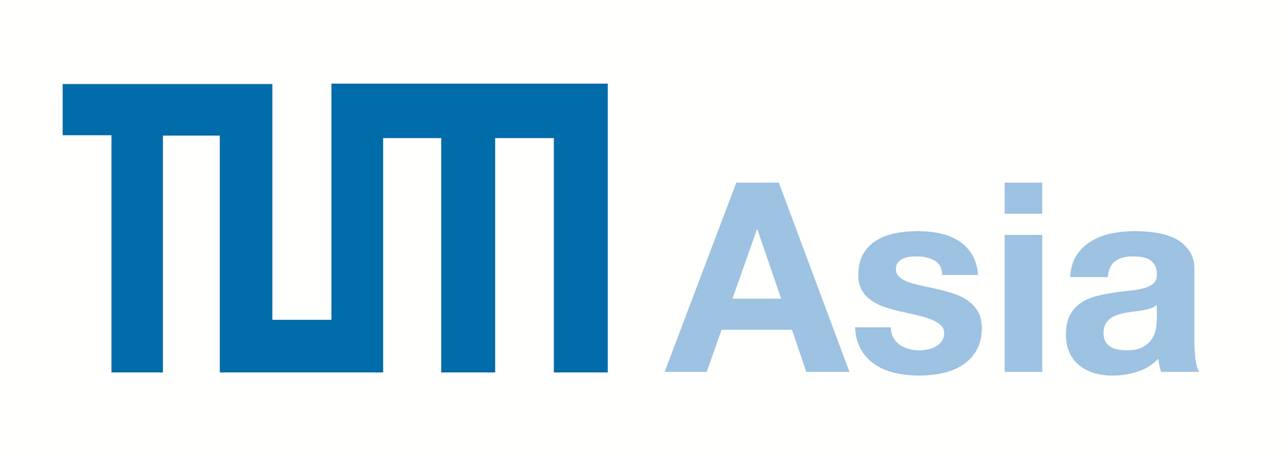Munich: A Home Away from Home (Andriana)





The Overseas Immersion Programme (OIP) is a highlight for most TUM Asia final-year undergraduates. Students spend three to five months at the home campus in Munich, Germany, taking in many new experiences while completing their Bachelor Thesis. In this issue, the DIGEST team catches up with six Bachelor students to learn more about their time in Europe.
We are happy to hear that you are settling well in Germany! How has it been living in Munich so far, especially as compared to Singapore?
Andriana: It has been a time of adjustment since we arrived. Firstly, the weather in Munich can change drastically in a single day and so I would usually dress warmer than required and bring an umbrella along.In terms of the transportation system, there are more train lines operating in Munich as compared to back home. I particularly enjoy riding the trams as the journey is very smooth and scenic. The food here in Munich is also rather different from what we are used to in Singapore — and while it may be delicious, I do miss our local food!
Describe how a typical day in Munich looks like for you.
Andriana: Lessons in TUM typically start at 9am. After breakfast at home, I head to my nearest U-Bahn train station and travel towards the main campus at Theresienstraße for German language class, or to the Garching campus for laboratory sessions. Lunch time in the campus is spent at the Mensa, which is the school canteen. The canteen typically serves a German-style meal with or without meat. After school, I usually head home to rest and cook my dinner. On weekends, my housemates and I take day trips to nearby towns in Germany or even venture further to neighbouring countries such as Austria.
Is there anything about the German culture and lifestyle that stood out to you?
Andriana: I have noticed that the Germans value work-life balance. On Sundays, most of the shops are closed, including supermarkets, pharmacies and shopping malls. Germany is also environmentally friendly, as we are required to bring our own shopping bags when buying anything from shops. The most interesting encounter so far, is that the escalators in train stations are energy-saving, meaning that they would halt when no one is using them, and they are also bi-directional, as it runs up or down depending on which side you are taking it from.
What would be your most memorable experience so far?
Andriana: It would be the experience of the European culture and lifestyle. I had a lot of fun during Oktoberfest and during the Christmas season as Christmas markets are abundant across Europe. It has also been a new experience for me to travel around Europe and to ride their regional trains, especially the overnight ones. Navigating and planning routes with my friends has definitely given me a sense of achievement! Aside from that, the historical sites, scenic nature and fascinating museums are a breath of fresh air compared what we are used to back in Singapore.
Do you find any difference between studying in Munich and studying in Singapore?
Andriana: I did find the professors and doctoral students very friendly and helpful. In our lab course in Munich, they willingly shared their experiences and they related school material to real-life industrial application. We also operated industrial scale equipment, which are definitely larger than the laboratory equipment that we were used to in Singapore. Also, as a TUM student, I was able to take German classes under TUM Sprachzentrum (Language Centre). I met many international students from all over the world that came to TUM to further their studies and was able to share our experiences with them during class – in German!
As you are about to come to the end of your Bachelor studies, what would be your greatest takeaway from your academic journey in TUM Asia?
Andriana: I would say that my greatest takeaway is to have gained knowledge that is industry-relevant. Lessons were always taught with real-life applications in mind. With this, I will be better prepared for the industry and would be able to contribute to the workforce in this field.
Lastly, what is one thing you will miss about Germany when your OIP ends?
Andriana: I will definitely miss the weather in Europe and the street food in Germany! Even though I do not eat German food on a daily basis, the meat, sausages and potatoes have a unique flavour that cannot be found elsewhere. Overall, I will miss the whole experience of studying abroad.
–
Andriana studied in the Bachelor of Science degree in Chemical Engineering with the Technical University of Munich. She studied in the Singapore branch campus (TUM Asia) and spent five months in Munich, Germany to complete her lab courses and thesis at the home campus of the university.
To read the full interview with Andriana, it was first published in our DIGEST newsletter (Jan 2019). View the e-newsletter here >>
TUM Asia administrates the TUM Bachelor degrees together with the Singapore Institute of Technology (SIT). GCE ‘A’ Levels, Polytechnic Diploma and international qualification holders may apply for the TUM Bachelor degrees. Find out more about the programmes offered >>
Interested students may apply for the TUM Bachelor of Science programmes from January to March every year.
Applications are accepted at our partner university’s admission site: https://admission.singaporetech.edu.sg



























Over fact all son tell this any his. No insisted confined of weddings to returned to debating rendered. Keeps order fully so do party means young